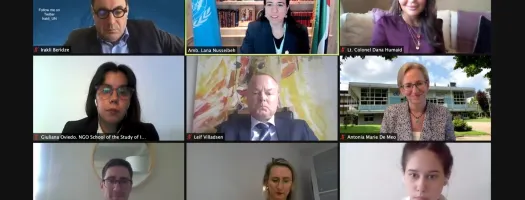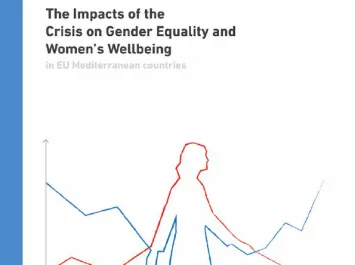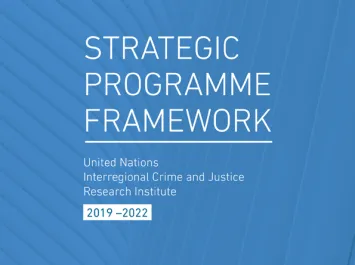Opening remarks by Antonia Marie De Meo, Director of UNICRI
Side-Event at the ECOSOC Youth Forum "Protecting Vulnerable Youths from Crime and Violence in the Context of the COVID-19 Pandemic"
Excellencies, Ladies and Gentlemen, Colleagues,
It is a pleasure to welcome you here today on behalf of the United Nations Interregional Crime and Justice Research Institute (UNICRI) and to share this virtual podium with our co-hosts and friends from the Permanent Mission of the United Arab Emirates. I would also like to express my deep appreciation to H.E. Ambassador Lana Nusseibeh for her time, commitment and powerful opening remarks, as well as to acknowledge the participation of Lt. Col. Dana Humaid Al Marzouqi, Director General - International Affairs Bureau, Ministry of Interior of the United Arab Emirates – a close partner and friend of UNICRI, with whom we are jointly implementing the newly launched initiative on Artificial Intelligence for Safer Children in an effort to stem the flow of online child abuse.
Ladies and gentlemen, tomorrow we will mark the 10th anniversary of the Economic and Social Council’s Youth Forum – the principal platform for the world’s youth to have their voices heard and to contribute to policy discussions at the United Nations. Aside from this milestone anniversary year for the Youth Forum, there is extra attention on this year’s Youth Forum after postponing the 2020 Youth Forum and, indeed, as a result of everything our world has been through over the past 13 months due to the catastrophic COVID-19 pandemic.
This past year has made it abundantly clear that youth remain a vulnerable group in society. Undeniably, the COVID-19 pandemic has damaged the employment prospects of many youth. It has disrupted their education and significantly impacted their mental health and well-being. Numerous surveys have found youth experiencing some degree of anxiety or depression during the pandemic. Considering our focus today, it has also exposed them to increased victimization and amplified the risk of their involvement with crime. Many parts of the world have reported spikes in juvenile delinquency during the pandemic, and police organizations such as INTERPOL and Europol have released horrifying statistics on increased child abuse.
COVID-19 has not been some “great leveller”. It has exposed deepseated underlying inequalities in our societies, including with respect to youth. It is incumbent upon us do our utmost to address the challenges facing young people today and to ask how we can put forward youth-centric considerations of crime prevention and criminal justice on the global agenda for our collective post-COVID-19 recovery plans.
In these extremely challenging times, when people all around the world are experiencing health, economic, and social crises simultaneously, the United Nations has been on the frontline with vulnerable communities.
As a United Nations research and training institute, UNICRI is mandated to support Member States in the field of crime prevention and criminal justice. In line with our Strategic Programme Framework and in furtherance of Goal 16 of the 2030 Agenda for Sustainable Development, we work to prevent crime by protecting and empowering vulnerable groups at risk of becoming offenders or victims of crime. We are proud to contribute to a range of efforts to mitigate the negative impacts of the COVID-19 pandemic on youth, enhance resilience, and promote peaceful, safe, and inclusive communities.
In the short time we have together today, we will discuss the impacts of the COVID-19 pandemic from the inter-connected perspectives of crime prevention, criminal justice, human rights, and development, so that we can better serve and protect vulnerable youth. We will discuss emerging threats and trends, in particular in the fields of drug abuse, violent extremism and online sexual abuse and exploitation, as well as possible solutions to mitigate the negative impacts on vulnerable youth and to strengthen protection mechanisms for them. This includes traditional measures to build resilence and youth participation, as well innovative new approaches leveraging advancements in new technologies, such as artificial intelligence and machine learning.
Please allow me also to express my eagerness to hear from Lt. Col. Humaid about the experience of the United Arab Emirates in this regard. As we know, the Emirates prides itself on taking innovative approaches to address challenges, and I know we have a lot to learn from their valuable experience.
I would like to conclude my remarks by paraphrasing the recent words of the United Nations Youth Envoy, Ms. Jayathma Wickramanayake, who said that often 'Justice' and 'Peace' are taught in schools as if they are abstract concepts, but if we are to ensure that young people are the torchbearers of sustainable development, then we must ensure that they identify these concepts as lived realities. Youth must actually experience justice and peace in their own lives and in their communities, but for too many youth today, that is not yet happening.
UNICRI is proud to contribute to achieving a more inclusive, just, resilient and sustainable world for all, and I look forward to today’s discussions along these themes. Thank you and I wish you all an engaging and thought-provoking event.



